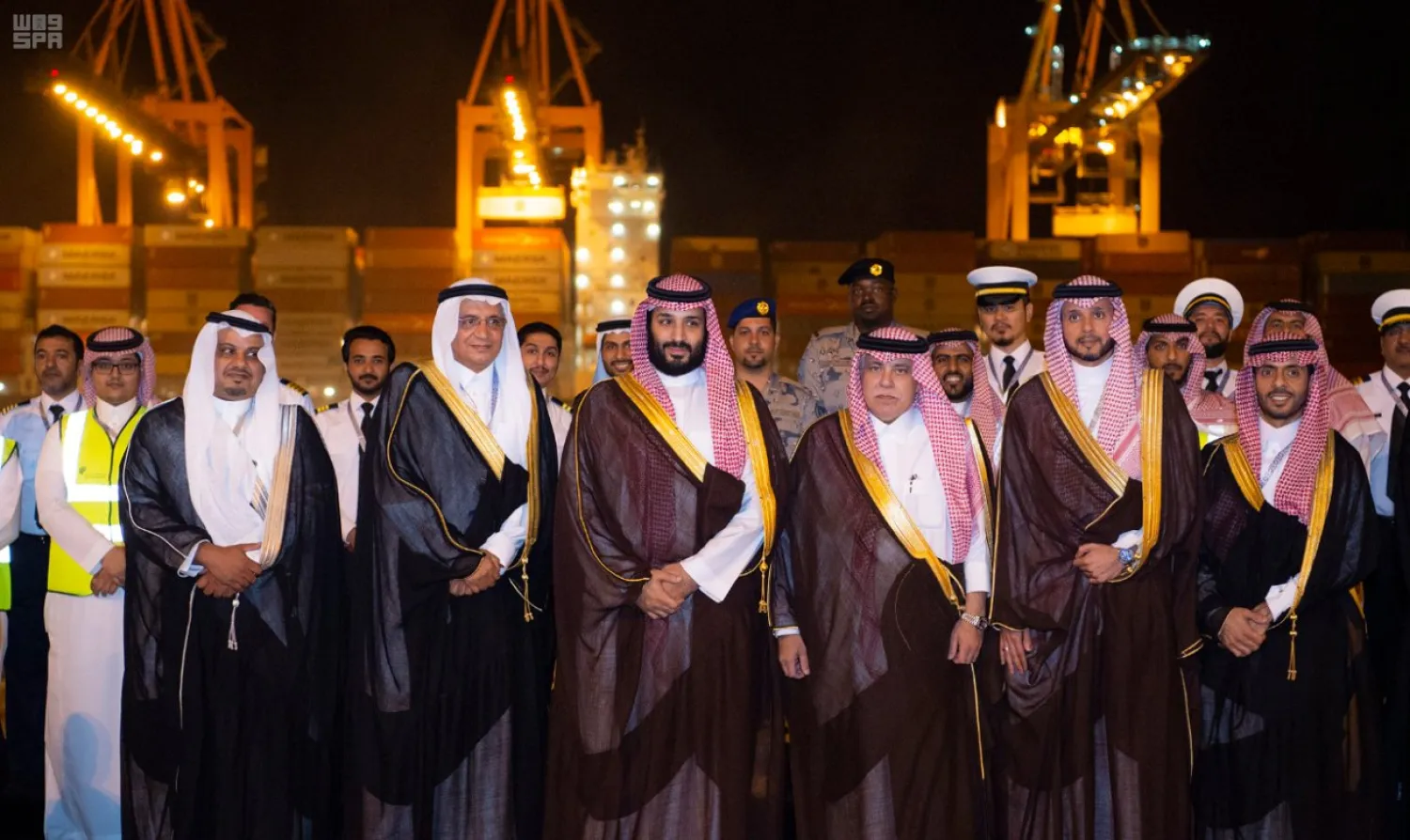Crown Prince Mohammed bin Salman, Deputy Prime Minister and Minister of Defense, inaugurated in Rabigh on Monday the King Abdullah Port during his visit to King Abdullah Economic City (KAEC), reported the Saudi Press Agency.
The event was attended by numerous officials, including Transportation Minister Nabil al-Amoudi and chairman of the Board of Directors of the Port Development Company Saleh Bin Laden.
A number of agreements were signed by the King Abdullah Port on the occasion. They include a memorandum of understanding with Saudi Air Cargo for setting up of a land-air bridge to link the port and airport sectors in Saudi Arabia with a volume of intra-trade, costing SR10 billion, by 2030.
One of the latest mega infrastructure projects in the Middle East, the King Abdullah Port was established based on Saudi Arabia’s vision for a world-class port that can receive modern vessels and transform the Kingdom into a global logistics hub.
The port has established partnerships with shipping companies, banks and international companies operating port operations, in addition to investments that exceeded 13 billion riyals. It will provide jobs for 20,000 Saudis.
The port features state-of-the-art facilities including 18-meter water berths, which are the deepest in the world, and the world’s largest and most advanced cranes, which employ the latest technology and feature a 65-ton lifting capacity as well as a handling capacity of 25 containers. Such facilities enable the port to serve giant container vessels now and in the future.
Owned by the Ports Development Company, King Abdullah Port is the region’s first port to be fully owned, developed, and operated by the private sector.
It has been listed as the fastest growing container port and one of the world’s top 100 ports after less than four years of operation.
Eight of the largest shipping lines operate at the port to offer integrated services to importers and exporters, and the port’s development plan is proceeding at a steady pace with a clear vision to become one of the world’s leading ports.
Utilizing its advanced facilities and proximity to the assembly, re-export, and logistics services zones, the port offers its clients logistics support that can enable them to achieve their desired growth.









